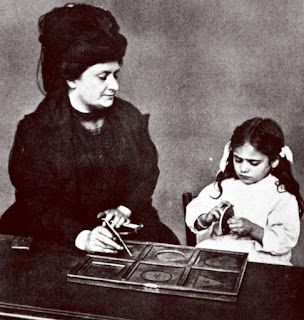Montessori
PRINCIPLES OF MONTESSORI
- Learning begins before birth
- All senses are used in the learning process
- The child is respected
- The Prepared Environment is essential
- Role of Educator is to guide, not ‘teach’
- Observation is the most important skill of the Educator
- Hand and mind work together
- Choice and freedom
KEY ELEMENTS OF MONTESSORI
- Multi age classes – vertical grouping by stages of development
- Three Hour work cycle
- Child Led, individual programming, independent learning
- Self- discipline & intrinsic motivation
- Materials with a control of error
- Holistic approach to education
WHAT IT AIMS TO DO
- Create a lifelong love of learning
- Concentration, persistence & coordination
- Normalisation & self-discipline
- Independence & responsibility
- Creative self-expression
HIGHLIGHTS
- Respect for the dignity of each child
- Freedom of choice within structure and limits
- “Follow the lead of the child”: each unfolds at his own pace
- The environment is “prepared”
- The teacher is a catalyst
- Learning is sensory based
- Children “act on the environment” using their hands
- Work and accomplishment bring joy and satisfaction
GRACE AND COURTESY
We say hello, we shake hands, we say, “I’m sorry,” we say “please” and “thank you,” we clean up after ourselves, we practice our table manners, and at Snack Time, we wait until everyone is served. Then we say, ”Bon appetite. We may eat.”
Montessori is not just a way to deliver education, it is a way of life.
MARIA MONTESSORI
She was the fist woman on the 10th of July in 1896 to qualify as a doctor in Italy.
Dr. Montessori after observation saw that children prefer work to play. As adults we think children want to play not work. It is really a substitute for what children really want to do. They may play house but really they want to do real things with mum or dad in the kitchen. Dr. Montessori said that children are intrinsically motivated to work they do not need external rewards and punishments.
Dr. Montessori after observation saw that children prefer work to play. As adults we think children want to play not work. It is really a substitute for what children really want to do. They may play house but really they want to do real things with mum or dad in the kitchen. Dr. Montessori said that children are intrinsically motivated to work they do not need external rewards and punishments.




Comments